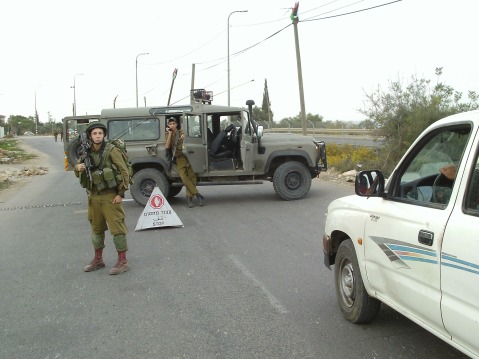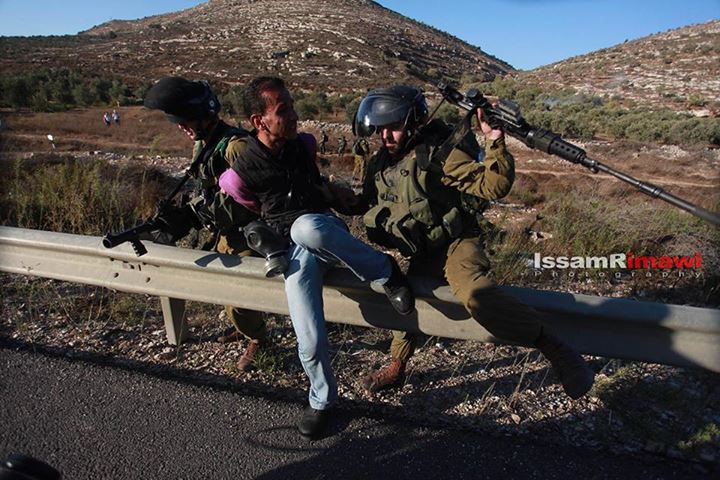Tag: Roadblock
-
Continuing harrassment of Izbat Tabib village
25th November 2013 | International Solidarity Movement, Nablus Team | Izbat Tabib, Occupied Palestine Yesterday, November 24th, Israeli soldiers blocked the road at the entrance to Izbat Tabib and entered the village on three separate occasions during the night, firing tear gas canisters and intimidating residents. At approximately 14:30, a military jeep carrying four soldiers set…
-
Updated: Three Palestinian activists arrested during demonstration against road closure in Qaryut
10th September 2013 | International Solidarity Movement, Ramallah Team | Qaryut, Occupied West Bank Update 11th September: Abdallah Abu Rahmah was released at around 10pm last night. Bashar Qaryouti and Salah al-Khawaja have also been released. Bashar has needed medical attention after being beaten during his arrest. ******* Three Palestinian activists have been arrested today related…
-
Three teenagers arrested in Azzun in one week
23th July 2013 | International Solidarity Movement, Nablus Team | Azzun, Occupied Palestine Israeli forces continue their strike on the village of Azzun. Last week alone, three teenagers were arrested and one was handed a paper to go to the Israeli DCO (District Coordination Office). On Thursday 18th July, two young men, Yahya Ali Adwan…


